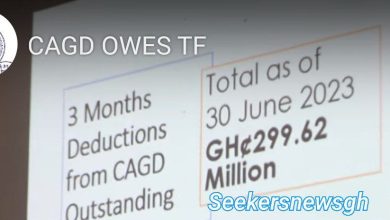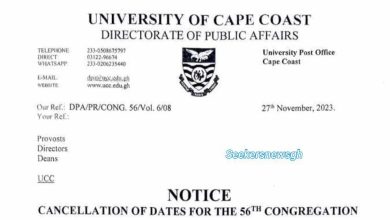” Urgent Alert: Don’t Gamble on BECE Grades for School Choice, Kofi Asare Warns!”
” Urgent Alert: Don’t Gamble on BECE Grades for School Choice, Kofi Asare Warns!”
In a recent revelation, Kofi Asare, a prominent figure at Eduwatch, has issued a stern caution to parents against relying solely on anticipated BECE grades when selecting schools for their wards. As part of his guidance, Asare educates parents on the intricate workings of the WAEC grading system, shedding light on the potential pitfalls of such a strategy.
At the heart of the matter lies the WAEC Stanine grading system, employed for the evaluation of BECE results. This norm-referenced system employs a predefined architecture for result distribution, underscoring the importance of understanding its nuances.
Grading System
Under the Stanine system, the allocation of Grades 1 to 9 adheres to fixed percentages of candidates, a fact that bears significant implications for aspirational students and their parents. For instance, merely 4% of candidates can attain the coveted Grade 1, while Grade 2 is attainable for a mere 7% and Grade 3 for just 12% of candidates. This pattern persists throughout the range, with only 4% consistently securing Grade 9.
One glaring revelation brought to light by Asare’s insight is that even a student with an impressive 90% in a subject like Mathematics might find themselves placed within the second 7% bracket (Grade 2). This situation arises from the fact that a small fraction, constituting 4%, has already achieved scores between 91% and 100%, thus claiming Grade 1. A crucial reminder: Grade 1 allocation cannot surpass the 4% threshold.
As such, the misguided notion that a student’s top position within their school guarantees a Grade 1 rank is dispelled. Instead, the emphasis is placed on students who consistently earn Grade A across subjects as indicative of their true standing.
BECE results
Eduwatch’s enduring advice remains steadfast: it is prudent to await the availability of official BECE results before embarking on the school selection process. Armed with accurate information, parents can make well-informed decisions that align with their child’s capabilities and aspirations.
Until the unveiling of BECE results, parents are encouraged to gain a comprehensive understanding of their child’s potential and approach school selection with reason and discernment, a stance consistently advocated by Eduwatch.






